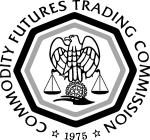
CFTC Whistleblower Alert: Be on the Lookout for Insider Trading or Improper Use of Information
The Whistleblower Office of the Commodity Futures Trading Commission (CFTC) is issuing this alert to inform members of the public about how they may make themselves eligible for both financial awards and certain protections while helping stop the improper use confidential information.
What is insider trading? What is an improper use of information?
Section 6(c)(1) of the Commodity Exchange Act and CFTC Regulation 180.1 prohibit, among other things, trading on the basis of material nonpublic information (MNPI) in breach of a pre‐existing duty or trading on the basis of MNPI that was obtained by fraud or deception. In addition, market participants are required to safeguard client or counterparty information in many circumstances, and failing to do so may violate CFTC Regulations 23.410, 155.3, or 155.4.
What types of misconduct should you be on the lookout for?
The CFTC has charged individuals who had a duty to protect MNPI but misappropriated it instead, such as In re Mark Sitzmann, In re Jon P. Ruggles, In re Arya Motazedi, or CFTC v. EOX. The Commission is concerned with conduct such as:
- Trading on market moving information that the source had a duty to protect
- Brokers front running customer orders or taking the other side of any customer order without consent
- Tipping or trading using MNPI obtained by virtue of employment
- Trading on MNPI that was obtained by fraud or deception
- FCMs or brokers improperly disclosing customer orders or other MNPI
- Swap dealers or major swap participants improperly disclosing MNPI or using MNPI provided by a counterparty without the counterparty’s consent
What can you do if you suspect misconduct?
You do not need to be an “insider” (like a trader or trading firm employee) to be a whistleblower. Victims of fraud and other market participants who observe misconduct committed by others may also qualify as whistleblowers. If you see something suspicious, you can
- Complete a Form TCR (Tip, Complaint, Referral) correctly and as completely as possible
- Provide details that are specific, credible, and timely
- Include as much transactional or identifying information as possible – e.g., names, Tag 50s, etc.
- Attach supporting documents or files to your Form TCR, as long as they are not protected by the attorney‐client privilege
- Supplement your Form TCR filing with any additional information via mail, fax, or email
About the CFTC
We are the U.S. regulator charged with ensuring the integrity of the futures & swaps markets.
About the Whistleblower Program
We will pay monetary awards to persons who voluntarily provide us with original information on a Form TCR about violations of the CEA or its rules, if that information leads to a successful CFTC enforcement action resulting in more than $1 million in monetary sanctions. The program also affords confidentiality and anti‐retaliation protections.
For more information go to: www.whistleblower.gov
Whistleblower Office
Commodity Futures Trading Commission
1155 21st Street, NW
Washington, DC 20581
Hotline: 866.873.5675
This article was prepared by the Commodity Futures Trading Commission’s Whistleblower Office. This article is provided for general informational purposes only and does not provide legal or investment advice to any individual or entity. It is not intended to, does not, and may not be relied upon to create any rights, substantive or procedural, enforceable by any party in any matter, civil or criminal. Please consult with your own legal adviser before taking any action based on this information. Please note that the above list of relevant types of misconduct is not exhaustive. For more information, refer to recent CFTC Enforcement cases and Prohibition on the Employment, or Attempted Employment, of Manipulative and Deceptive Devices and Prohibition on Price Manipulation, 76 Fed. Reg. 41,398, 41,403 (July 14, 2011).
June 2019
